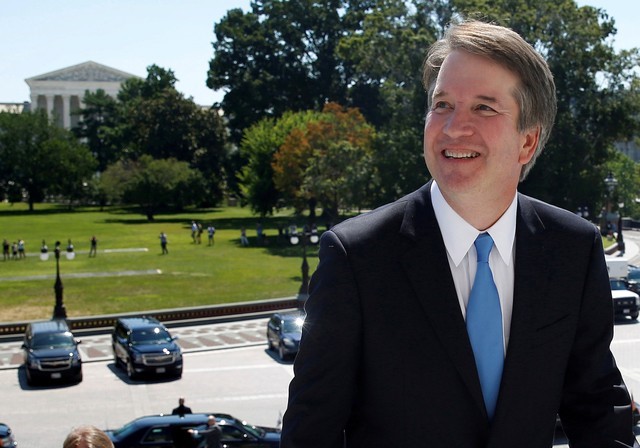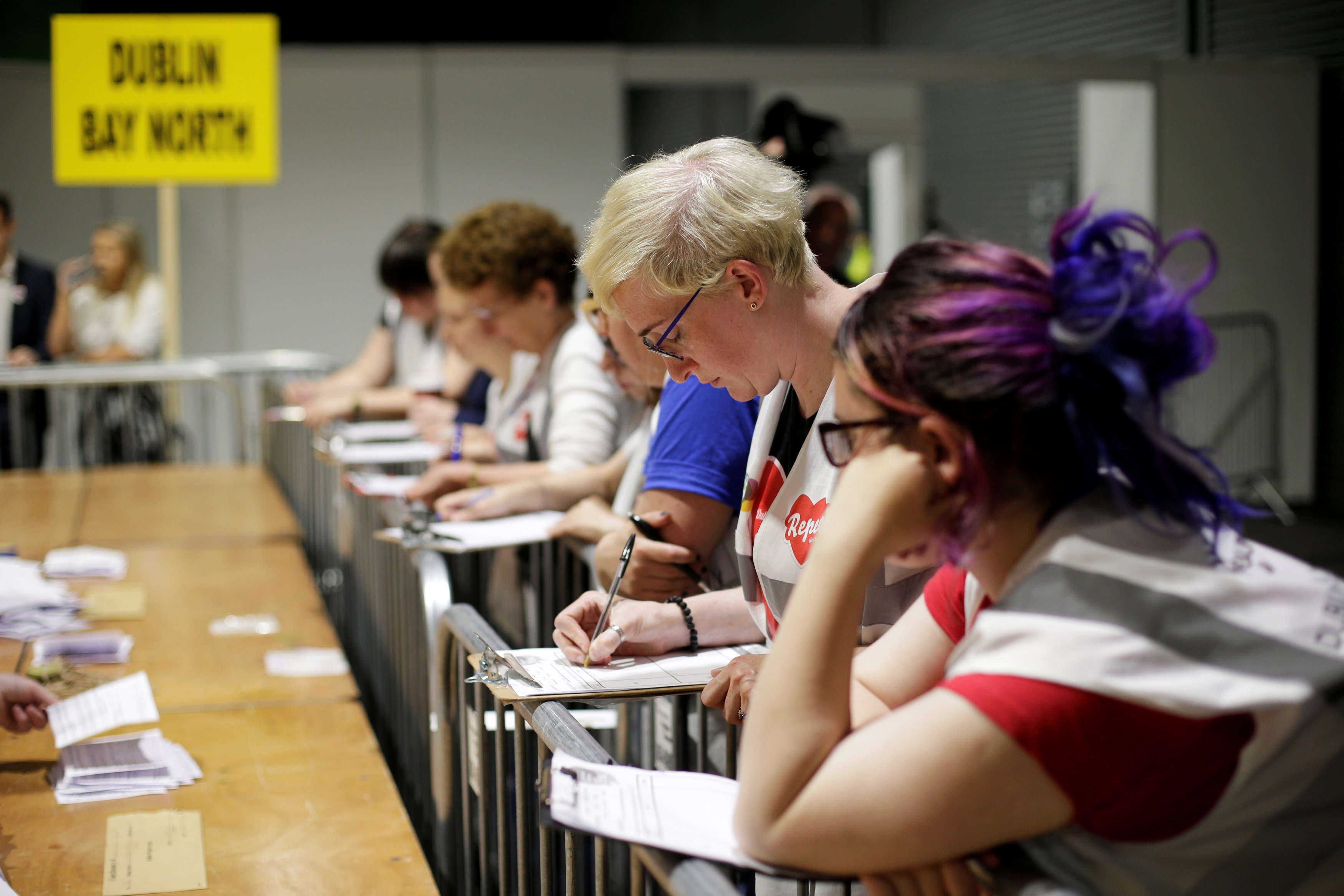
By Lawrence Hurley and Andrew Chung
WASHINGTON (Reuters) – President Donald Trump’s Supreme Court nominee may not have to wait too long for controversial cases if he is confirmed to the job, with disputes involving abortion, immigration, gay rights, voting rights and transgender troops possibly heading toward the justices soon.
Republicans are hoping Brett Kavanaugh, the conservative U.S. appeals court judge selected on Monday by Trump to replace retiring Justice Anthony Kennedy, will be confirmed by the Senate before the next Supreme Court term opens in October.
There are no blockbusters among the 38 cases already on the docket for the justices, but they could add disputes on controversial issues being appealed from lower courts.
Legal battles are developing over state laws restricting abortion including one in Arkansas that effectively bans medication-induced abortions. The justices in May opted not to intervene in a case challenging that law, waiting instead for lower courts to rule, but it could return to them in the future.
Other abortion-related cases could reach the court within two years.
These involve laws banning abortions at early stages of pregnancies, including Iowa’s prohibition after a fetal heartbeat is detected. There is litigation arising from plans by certain states including Louisiana and Kansas to stop reimbursements under the Medicaid insurance program for the poor for Planned Parenthood, a national abortion provider.
There also are challenges to state laws imposing difficult-to-meet regulations on abortion providers such as having formal ties, called admitting privileges, at a local hospital.
Kavanaugh’s judicial record on abortion is thin, although last year he was on a panel of judges that issued an order preventing a 17-year-old illegal immigrant detained in Texas by U.S. authorities from immediately obtaining an abortion.
GAY RIGHTS
Another issue expected to return to the court is whether certain types of businesses can refuse service to gay couples because of religious objections to same-sex marriage.
The high court in June sided, on narrow legal grounds, with a Colorado baker who refused to make a wedding cake for two men because of his Christian beliefs, but sidestepped the larger question of whether to allow broad religious-based exemptions to anti-discrimination laws.
That issue could be back before the justices as soon as the court’s next term in a case involving a Washington state Christian florist who similarly spurned a gay couple.
Kennedy, who wrote the baker ruling, cast decisive votes backing gay rights four times, most notably in 2015 when the court legalized same-sex marriage nationwide. It is not known how Kavanaugh would vote on those issues as he has not been involved in any gay rights cases during his 12 years as a judge.
Trump’s bid to ban transgender people from the military has been challenged in lower courts. That issue could make its way to the Supreme Court.
After lower courts blocked Trump’s ban last year, he announced in March he would endorse Defense Secretary James Mattis’ plan to restrict the military service of transgender people who have a condition called gender dysphoria. Trump’s administration has asked courts to allow that policy to go into effect, but so far to no avail.
Sharon McGowan, a lawyer with gay rights group Lambda Legal, said she saw no evidence Kavanaugh would be any less conservative on gay and transgender rights than Trump’s other appointee to the court, Neil Gorsuch.
On immigration, litigation is continuing over Trump’s plan to rescind a program created under Democratic former President Barack Obama that protected from deportation hundreds of thousands of young immigrants brought to the United States illegally as children.
Lower courts blocked Trump’s plan to scrap the program. Congress has failed to agree on a plan to replace it.
Kavanaugh could have to deal with cases involving a practice called partisan gerrymandering in which state legislators redraw electoral maps to try to cement their own party in power. In June, the justices avoided a broad ruling on whether partisan gerrymandering violates the constitutional rights of voters and whether federal judges can intervene to rectify it.
Democrats have said Republican gerrymandering has helped Trump’s party keep control of the U.S. House of Representatives and various state legislatures.
Kennedy previously kept his conservative colleagues from closing the door to litigation in federal court challenging partisan gerrymandering.
The partisan gerrymandering case most likely to return to the Supreme Court involves claims that Republican legislators in North Carolina manipulated the boundaries of the state’s 13 U.S. House districts to ensure lopsided wins for the party.
Attorney Paul Smith of the Campaign Legal Center, which represents the North Carolina plaintiffs, said they had been focused on trying to convince Kennedy to rule in their favor, and now will try to convince Chief Justice John Roberts, seen as the next-most-moderate of the conservative justices. Smith viewed Kavanaugh as likely voting with the court’s most conservative justices to reject gerrymandering challenges.
(Reporting by Lawrence Hurley and Andrew Chung; Editing by Will Dunham)












